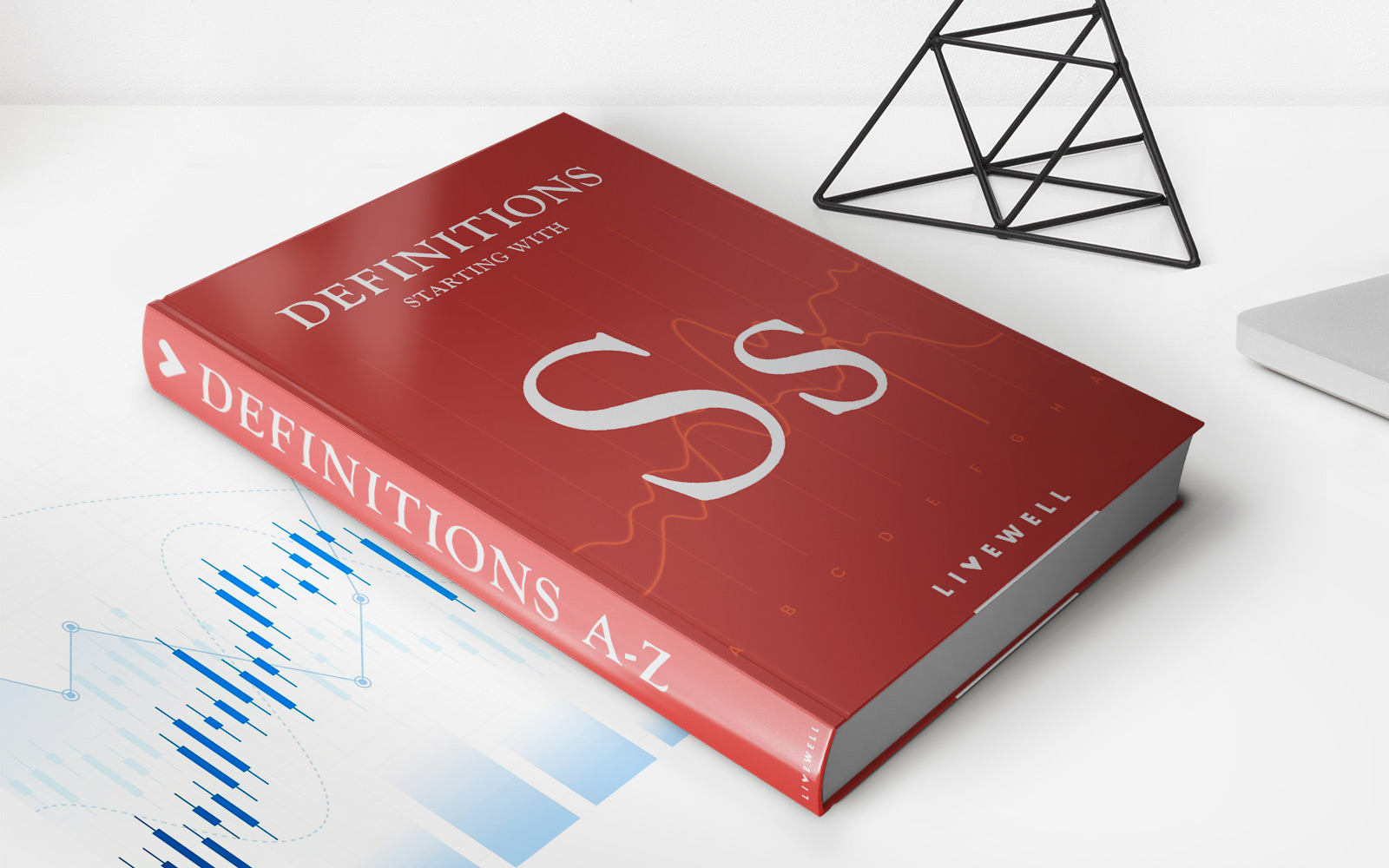

Finance
How Does Breaking A Lease Affect Your Credit
Published: January 11, 2024
Breaking a lease can have negative impacts on your credit score and financial situation. Learn more about the consequences of breaking a lease and how it can affect your finances.
(Many of the links in this article redirect to a specific reviewed product. Your purchase of these products through affiliate links helps to generate commission for LiveWell, at no extra cost. Learn more)
Table of Contents
Introduction
Signing a lease agreement is a legally binding commitment between a tenant and a landlord, creating a mutual obligation to fulfill the terms of the lease. However, there may be circumstances where breaking a lease becomes unavoidable. Whether it’s due to a job relocation, financial difficulties, or personal reasons, breaking a lease can have significant consequences, one of which is its impact on your credit score.
In this article, we will explore how breaking a lease agreement can affect your credit and what steps you can take to mitigate any potential damage. We’ll delve into the intricacies of lease agreements, discuss the ramifications of breaking a lease, and explain how it can influence your creditworthiness. By understanding the implications of breaking a lease, you can make informed decisions and take appropriate measures to protect your credit standing.
It is important to note that while this article provides general information, it is not intended to serve as legal advice. Each situation is unique, and it’s advisable to consult with a legal professional or financial advisor if you find yourself facing the decision to break a lease.
Now, let’s dive into the details and gain a comprehensive understanding of how breaking a lease can affect your credit score.
Understanding Lease Agreements
Before we delve into the implications of breaking a lease, it’s crucial to grasp the fundamental concepts of lease agreements. A lease agreement, also known as a rental agreement or tenancy agreement, is a legally binding contract between a landlord and a tenant. It outlines the terms and conditions of the rental arrangement, including the duration of the lease, monthly rent amount, security deposit, maintenance responsibilities, and restrictions on activities within the property.
Lease agreements are designed to protect the rights and interests of both parties involved. They establish a clear understanding of the obligations and expectations of the tenant and the landlord throughout the tenancy period. Typically, lease agreements are fixed-term, with a specified length, such as six months or one year. Breaking a lease occurs when a tenant decides to terminate the lease before the agreed-upon end date.
It is important to thoroughly read and understand the terms of the lease agreement before signing it. Make sure you are aware of any early termination clauses, penalties, or provisions related to subletting. Familiarize yourself with the rights and responsibilities you have as a tenant, as well as those of the landlord. Understanding the lease agreement ensures that you are fully informed about the potential consequences of breaking the lease.
Breaking a lease agreement should not be taken lightly, as it can lead to financial and legal consequences. However, in certain situations, breaking a lease may be inevitable. Let’s explore what happens when you decide to break a lease and the possible repercussions it may have on your credit score.
Breaking a Lease Agreement
Breaking a lease agreement means that you are ending the rental contract before the agreed-upon lease term expires. While lease agreements are intended to be binding for the specified duration, there are instances when breaking a lease becomes necessary. Some common reasons for breaking a lease include job relocation, financial hardship, changes in personal circumstances, or issues with the rental property.
When you decide to break a lease, it’s important to review the terms of the lease agreement to understand what is required of you in such a situation. Many lease agreements have clauses that outline the steps and penalties associated with breaking the lease early. These clauses may require you to provide written notice to the landlord within a specific timeframe, pay a fee or penalty, or find a replacement tenant to take over the lease.
If you fail to comply with the terms of breaking the lease, you may be held financially responsible for the remaining rent payments until the end of the lease term. This can result in significant financial strain, especially if you are unable to afford two rent payments simultaneously.
It’s important to communicate openly and honestly with your landlord when you decide to break a lease. By having a conversation and explaining your situation, you may be able to negotiate a mutual agreement or come to a resolution that minimizes the financial burden on both parties. Some landlords may be understanding and willing to work out a solution, while others may be less lenient. Regardless, it is essential to handle the process professionally and within the guidelines of the lease agreement.
Next, we’ll discuss the potential consequences of breaking a lease and how it can impact your credit score.
Consequences of Breaking a Lease
Breaking a lease can have various consequences, both financial and non-financial. It’s essential to be aware of these potential repercussions before deciding to break your lease. Let’s explore some of the common consequences:
1. Financial Penalties: Most lease agreements include provisions for early termination, which often come with financial penalties. These penalties can range from a fixed fee to having to pay the remaining rent for the duration of the lease. It’s crucial to review your lease agreement to understand the specific penalties you may face.
2. Loss of Security Deposit: In many cases, breaking a lease means forfeiting your security deposit. Landlords may use this deposit to cover any unpaid rent or damages caused by your early departure.
3. Legal Action: If you break your lease without following the proper procedures outlined in the lease agreement or fail to fulfill your financial obligations, your landlord may take legal action against you. This can result in further financial penalties, eviction proceedings, or damage to your credit score.
4. Difficulty Renting in the Future: Breaking a lease can negatively impact your rental history, making it more challenging to rent a new property. Landlords often conduct background checks and request rental references, and a history of breaking a lease can raise red flags and lead to rejections for future rental applications.
5. Negative Rental References: If you break your lease, it’s likely that your previous landlord will make note of the early termination when providing references for your future rental applications. This can make it challenging to secure a new rental property and potentially limit your options.
Breaking a lease is a serious decision and should not be taken lightly. It’s essential to weigh the potential consequences and consider alternatives before making a final decision. Next, we’ll discuss how breaking a lease can impact your credit score.
Impact on Credit Score
Breaking a lease can have a negative impact on your credit score, although it may not directly impact your credit history like a loan or credit card payment would. Generally, rental payments are not included in the standard credit reporting process unless they are sent to a collections agency due to non-payment.
However, if you break your lease and leave unpaid rent or fees, your landlord may choose to send your account to a collections agency. In this case, the collections agency may report the delinquent debt to the credit bureaus, which can result in a negative entry on your credit report. This negative entry can stay on your credit report for up to seven years and can lower your credit score.
Additionally, some landlords and property management companies are part of reporting services that specifically track rental payment data. If your landlord reports your delinquent rent payments or your broken lease to one of these reporting services, it may affect your ability to rent in the future. Future landlords who subscribe to these services may see your negative rental history, making it more challenging to secure a new rental agreement.
It’s important to note that timely rental payments and a positive rental history typically do not have a direct positive impact on your credit score unless they are reported through one of these specialized services. However, maintaining a good rental history can still be valuable when you apply for future rental properties, as many landlords will conduct rental history checks as part of the application process.
While breaking a lease itself may not directly impact your credit score, the financial consequences and potential involvement of collections agencies can have long-lasting effects. It’s crucial to take steps to mitigate the damage and protect your credit standing if you find yourself in a situation where breaking a lease is inevitable.
In the next section, we’ll discuss how breaking a lease can be reported to credit bureaus and what you can do to minimize the impact on your credit score.
Reporting to Credit Bureaus
When it comes to breaking a lease and its impact on your credit, it’s important to understand how the information is reported to credit bureaus. As mentioned earlier, rental payments are generally not included in the standard credit reporting process unless they are sent to a collections agency. However, there are some scenarios where a broken lease can affect your credit score:
1. Collections Agencies: If your unpaid rent or fees are sent to a collections agency, they may report the delinquent debt to the credit bureaus. This negative entry can significantly impact your credit score and remain on your credit report for several years.
2. Rental Reporting Services: Some landlords and property management companies are part of reporting services that track rental payment data. They may report your broken lease or delinquent rent payments to these specialized services. However, not all landlords participate in these reporting services, so the impact on your credit score may vary.
If your broken lease or unpaid rent is reported to credit bureaus, it can lower your credit score and make it more challenging to secure credit cards, loans, or even future rental agreements. A lower credit score may also lead to higher interest rates or less favorable terms when applying for financial products.
It’s important to regularly monitor your credit report to check for any negative entries related to breaking a lease. You can obtain free copies of your credit report from the major credit bureaus (Equifax, Experian, and TransUnion) once a year to ensure accuracy and address any potential issues.
Now, let’s move on to the next section, where we’ll discuss steps you can take to mitigate the damage and protect your credit after breaking a lease.
Mitigating the Damage
While breaking a lease can have negative consequences, there are steps you can take to mitigate the potential damage to your credit. Here are some strategies to consider:
1. Communication with Landlord: Maintain open and honest communication with your landlord throughout the process. Explain your reasons for breaking the lease and try to negotiate a mutually beneficial resolution, such as finding a replacement tenant or working out a payment plan to settle any outstanding dues.
2. Paying Outstanding Dues: If you have unpaid rent or fees, make every effort to settle them as soon as possible. Clearing your liabilities can help prevent the debt from being sent to collections and impacting your credit report.
3. Confirm Reporting Practices: Request confirmation from your landlord or property management company about their reporting practices. Ask if they report broken leases or rental payment data to any specialized rental reporting services or collections agencies. Knowing this information can help you understand the potential impact on your credit score.
4. Negotiating a Settlement: If your account has been sent to collections, you may be able to negotiate a settlement with the collections agency. In some cases, they may be willing to accept a lower payment in exchange for removing the negative entry from your credit report.
5. Build Positive Credit: To offset the negative impact of a broken lease, focus on building positive credit. Make your credit card, loan, and other bill payments on time, and keep your credit utilization low. This consistent and responsible use of credit can help improve your credit score over time.
6. Rental References: As you move forward, strive to establish positive rental references. Maintain a good relationship with your future landlords or property managers, pay your rent on time, and fulfill your obligations. Positive rental references can help offset the negative impact of a broken lease.
Remember, each situation is unique, and the steps to mitigate the damage may vary. It’s essential to assess your specific circumstances and consider seeking advice from a financial professional or credit counselor for personalized guidance.
Now, let’s move on to the next section, where we’ll outline the steps you can take after breaking a lease.
Steps to Take after Breaking a Lease
After breaking a lease, there are several important steps you should take to manage the situation effectively and minimize any potential negative impacts. Here are some recommended steps to consider:
1. Review the Lease Agreement: Take the time to review your lease agreement and understand the specific terms and conditions related to breaking the lease. Familiarize yourself with any penalties, notice periods, or requirements for finding a replacement tenant.
2. Communicate with Your Landlord: Maintain open and honest communication with your landlord. Provide written notice of your intention to break the lease and explain the reasons behind your decision. Be prepared to discuss potential solutions or negotiate a resolution that works for both parties.
3. Document Everything: Keep detailed records of all communication with your landlord, including emails, letters, and any agreements reached. This documentation can be crucial if any disputes or legal issues arise in the future.
4. Pay Outstanding Dues: Make every effort to settle any outstanding rent payments, fees, or damages owed to your landlord. Paying your dues promptly can prevent further damage to your credit and help maintain a positive relationship with your landlord.
5. Seek Legal Advice (if necessary): If you encounter difficulties in resolving the situation or face legal actions from your landlord, it may be wise to consult with a legal professional who specializes in tenant rights and lease agreements. They can provide specific guidance based on your circumstances.
6. Mitigate the Impact on Your Credit: Take steps to mitigate the potential impact on your credit score. This includes paying off any outstanding debts, negotiating settlements with collections agencies if applicable, and working towards building positive credit history moving forward.
7. Secure New Rental References: As you search for a new rental property, it’s important to proactively secure positive rental references. Maintain a good relationship with your future landlords or property managers, pay rent on time, and fulfill your lease obligations. These positive references can help offset the negative impact of breaking a lease.
8. Budget and Plan Finances: Assess your financial situation and make a budget to ensure you can afford your new rental payments along with any remaining financial obligations from breaking your previous lease. Proper financial planning will help you avoid similar situations in the future and maintain a healthy credit profile.
Remember, each situation is unique, and the steps you need to take may vary. It’s crucial to assess your specific circumstances and consider seeking advice from professionals, such as lawyers, financial planners, or credit counselors, to guide you through the process.
Finally, let’s conclude our discussion on how breaking a lease can affect your credit score.
Conclusion
Breaking a lease is a significant decision that can have both immediate and long-term consequences. While it may become unavoidable in certain situations, it’s important to understand the potential impacts on your credit score and take steps to mitigate any damage.
When breaking a lease, it’s crucial to communicate openly with your landlord, understand the terms outlined in your lease agreement, and fulfill your financial obligations to the best of your ability. Maintaining a positive relationship and settling any outstanding dues can help minimize the negative impact on your credit history.
While rental payments themselves typically do not directly affect your credit score, breaking a lease can lead to delinquent payments and potential involvement of collections agencies. If your account is sent to collections or reported to rental reporting services, it can have a significant impact on your credit score and make it challenging to secure future rentals or obtain favorable terms for financial products.
To minimize the damage, it’s important to take proactive steps such as negotiating settlements with collections agencies, building positive credit history, and securing positive rental references for future applications. Regularly monitoring your credit report can help you identify any negative entries related to breaking your lease and take necessary actions to address them.
Remember, each situation is unique, and it’s advisable to consult with legal professionals or financial advisors to understand the specific implications and options available to you based on your circumstances.
By being informed, proactive, and responsible, you can navigate the process of breaking a lease and protect your credit standing to the best of your ability. This will help you move forward with stability and confidence in your future rental endeavors.














